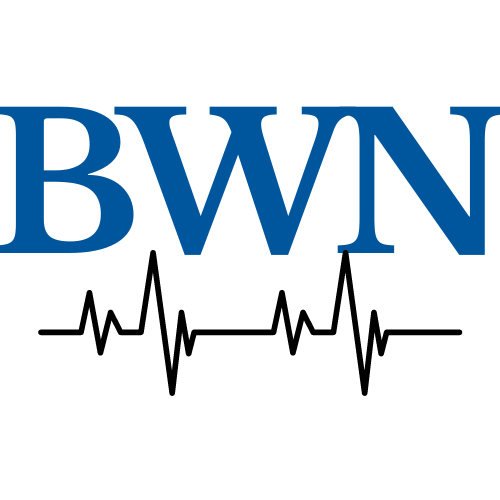
References by Category
TBI/ concussion
Esty ML: Treatment Results for Mild/Moderate Traumatic Brain Injury using EEG data provides quantitative information with predictive value for rehabilitation outcomes and treatment planning. Premier Outlook 3(4):56-58, 2002
Nelson DV, Esty ML: Neurotherapy for chronic headache following traumatic brain injury. Mil Med Res 2:22, 2015a
Nelson DV, Esty ML: Neurotherapy for Chronic TBI/PTSD Symptoms in Vietnam Veterans. J Head Trauma Rehabil 24:5,403, 2009
Nelson DV, Esty ML: Neurotherapy of TBI/PTSD in OEF/OIF Veterans. J Neuropsychiatry ClinNeurosci, 21:221-223, 2009
Nelson DV, Esty ML: Neurotherapy of traumatic brain injury/posttraumatic stress symptoms in OEF/OIF veterans. J Neuropsychiatry ClinNeurosci 24:237-240, 2012
Nelson DV, Esty ML: Neurotherapy of traumatic brain injury/post-traumatic stress symptoms in Vietnam veterans. Mil Med 180:e1111-e1114, 2015b
Headache/migraine
Nelson DV, Esty ML: Neurotherapy for chronic headache following traumatic brain injury. Mil Med Res 2:22, 2015a
“Neurotherapy for chronic headache following traumatic brain injury” David V. Nelson, PhD, and Mary Lee Esty, PhD, Military Medical Research (2015) 2:22 DOI 10.1186/s40779-015-0049-y
PTSD
*Nelson DV, Esty ML: Neurotherapy for Chronic TBI/PTSD Symptoms in Vietnam Veterans. J Head Trauma Rehabil 24:5,403, 2009
Nelson DV, Esty ML: Neurotherapy for pain in veterans with trauma spectrum disorders. J of Pain, 10:S18, 2009
*Nelson DV, Esty ML: Neurotherapy of TBI/PTSD in OEF/OIF Veterans. J Neuropsychiatry ClinNeurosci, 21:221-223, 2009
*Nelson DV, Esty ML: Neurotherapy of traumatic brain injury/posttraumatic stress symptoms in OEF/OIF veterans. J Neuropsychiatry ClinNeurosci 24:237-240, 2012
*Nelson DV, Esty ML: Neurotherapy of traumatic brain injury/post-traumatic stress symptoms in Vietnam veterans. Mil Med 180:e1111-e1114, 2015b
Study Abstracts
“Neurotherapy for chronic headache following traumatic brain injury” David V. Nelson, PhD, and Mary Lee Esty, PhD, Military Medical Research (2015) 2:22 DOI 10.1186/s40779-015-0049-y
“Neurotherapy of Traumatic Brain Injury/Post-Traumatic Stress Symptoms in Vietnam Veterans” David V. Nelson, PhD, and Mary Lee Esty, PhD, Military Medicine, 180, 10:e1111, 2015
“Neurotherapy of Traumatic Brain Injury/Posttraumatic Stress Symptoms in OEF/OIF Veterans” David V. Nelson, PhD, and Mary Lee Esty, PhD, The Journal of Neuropsychiatry and Clinical Neurosciences 2012; 24:237-240
“Neurotherapy for chronic headache following traumatic brain injury” David V. Nelson and Mary Lee Esty Military Medical Research (31 August 2015)
“Neurotherapy of attention deficit/hyperactivity symptoms [Summary].” Esty ML and Nelson D. The Journal of Neuropsychiatry and Clinical Neurosciences, 22:14, 2011. Poster presented at the 22nd Annual Meeting of the American Neuropsychiatric Association, Denver, CO, March 2011.
“Neurotherapy of TBI/PTSD in OEF/OIF Veterans.” Esty ML and Nelson D. The Journal of Neuropsychiatry and Clinical Neurosciences, 21:221-223, 2009.
“Neurotherapy for Chronic TBI/PTSD Symptoms in Vietnam Veterans.” Nelson, D and Esty, ML. The Journal of Head Trauma Rehabilitation, (24)5, 403, 2009.
“Neurotherapy for pain in veterans with trauma spectrum disorders.” Nelson, D and Esty, ML. The Journal of Pain, 10:S18, 2009.
“Flexyx Neurotherapy System in the Treatment of Traumatic Brain Injury: An Initial Evaluation.” Schoenberger, N., Shiflett, S., Esty, M.L. et al. The Journal of Head Trauma Rehabilitation. Vol.16, # 3. pp. 260 – 274. June , 2001.
The 2001 NIH-funded wait-list controlled pilot study of FNS treatment for TBI, documented significant positive change over 25 half-hour treatments, and at 3-month follow up. Dr. Mary Lee Esty conducted this study at the Neurotherapy Center of Washington (NCW) in cooperation with the Kessler Medical Rehabilitation Research and Education Corporation, West Orange, NJ. (Schoenberger et al., 2001) The results demonstrated that FNS is “a promising new treatment for TBI.” Twelve participants were selected on the basis of having no expectation of any substantial improvement in functioning, either from the passage of time or further rehabilitation. Nine were classified as mild TBI and three as moderate TBI. The range of LOC was from 1 minute to 27 days, with TBI events occurring between three and 21 years pre-treatment. Inpatient and outpatient rehabilitations had been completed. Quality of life, social, and economic benefits of FNS treatment were evident in that several returned to work at their pre-trauma level of functioning, six with full-time jobs, and the seventh in a university administrative post with a reduced load.
The findings of this study have important implications for those with chronic headache, Fibromyalgia (FM), or moderate cognitive problems of short-term memory, fatigue, and depression, all potentially symptoms from TBI. The changes in the study participants that also had a diagnosis of FM or other pain led directly to an unsolicited grant for the FM study with the Rush, Presbyterian, St-Luke’s Medical Center, Chicago, IL.
Articles and Publications
“Treatment Results for Mild/Moderate Traumatic Brain Injury Using EEG Data Provides Quantitative Information with Predictive Value for Rehabilitation Outcomes and Treatment Planning”. Esty, M.L. (2002). Premier Outlook, Vol. 3(4), 56-58.
Other Publications
Heads Up!
Neurofeedback – A New Approach for Treating TBI
By Mary Lee Esty, Ph.D., L.C.S.W.-C.
